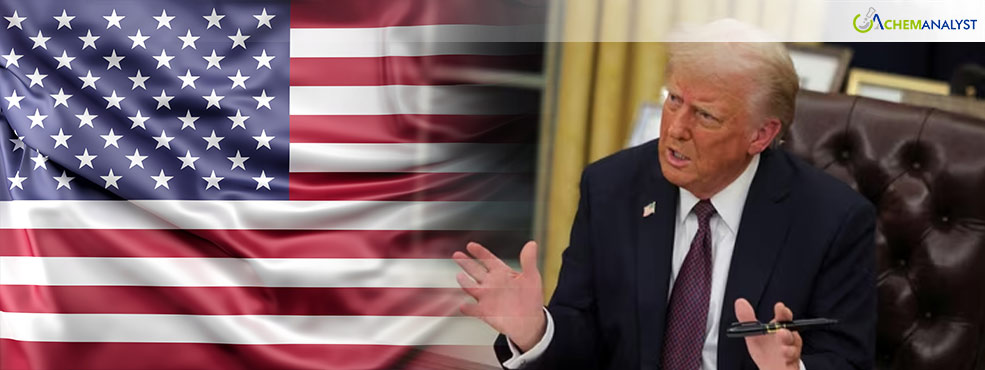Welcome To ChemAnalyst

In a major policy shift, U.S. President Donald Trump has ordered a suspension of new federal offshore wind leasing, following his inauguration on January 20, 2025. The executive order, which aims to pause offshore wind development until a comprehensive environmental and economic review is completed, has sent shockwaves through the growing U.S. offshore wind sector. Trump criticized wind turbines as “ugly,” “expensive,” and harmful to wildlife, halting further lease approvals. However, existing projects are not expected to be affected by this new directive, raising concerns for European companies heavily invested in U.S. offshore wind.
Under former President Joe Biden, the U.S. offshore wind industry had gained momentum, with a goal of achieving 30 gigawatts (GW) of offshore wind capacity by 2030. In response, several European energy giants have acquired offshore wind leases and launched ambitious projects in U.S. waters. Despite Trump’s new order, these companies, many of which have already secured key leases, remain committed to their U.S. ventures, though their future plans may now face additional hurdles.
Among the European companies with significant offshore wind investments in the U.S. are:
• BP (UK): BP holds a lease off the coast of Massachusetts for its Beacon Wind project, part of a new joint venture with Japan’s Jera.
• EDF (France): EDF, in partnership with Shell, owns a 50-50 joint venture called Atlantic Shores, approved to build two offshore projects off the New Jersey coast.
• EDPR (Portugal): EDPR, in a 50-50 joint venture with Engie, is developing the Southcoast Wind project off Massachusetts, slated to begin construction in late 2025.
• Engie (France): Engie’s Ocean Winds joint venture with EDPR is advancing multiple projects, including Bluepoint Wind off New York and New Jersey, as well as Golden State Wind in California.
• Equinor (Norway): Equinor is developing the Empire Wind project, expected to power 500,000 New York homes by 2027, with plans for additional projects off the U.S. East Coast.
• Iberdrola (Spain): Iberdrola’s U.S. subsidiary, Avangrid, is working on Vineyard Wind 1 off Massachusetts and Kitty Hawk Wind off Virginia and North Carolina.
• Orsted (Denmark): Orsted, which already operates the U.S.'s first offshore wind farm, Block Island, is developing several projects, including Sunrise Wind, although the commissioning of this project has been delayed until 2027.
• RWE (Germany): RWE has partnered with Britain’s National Grid for several projects off the Northeast U.S. and also holds a lease for a floating wind farm off California.
With a growing number of European companies involved in U.S. offshore wind, Trump’s stance presents a significant challenge. These companies, including energy giants like Shell, TotalEnergies, and others, are now bracing for possible delays or shifts in policy that could affect the development timelines and financial viability of their U.S. projects.
While the pause may temporarily hinder expansion, European firms remain committed to the U.S. market, with some already grappling with the high costs and delays associated with large-scale offshore wind development. As this situation unfolds, both the U.S. government and the European energy sector will likely face intense scrutiny from environmental groups, investors, and the public, all of whom are keenly watching how this shift will affect the country’s renewable energy future.
We use cookies to deliver the best possible experience on our website. To learn more, visit our Privacy Policy. By continuing to use this site or by closing this box, you consent to our use of cookies. More info.
